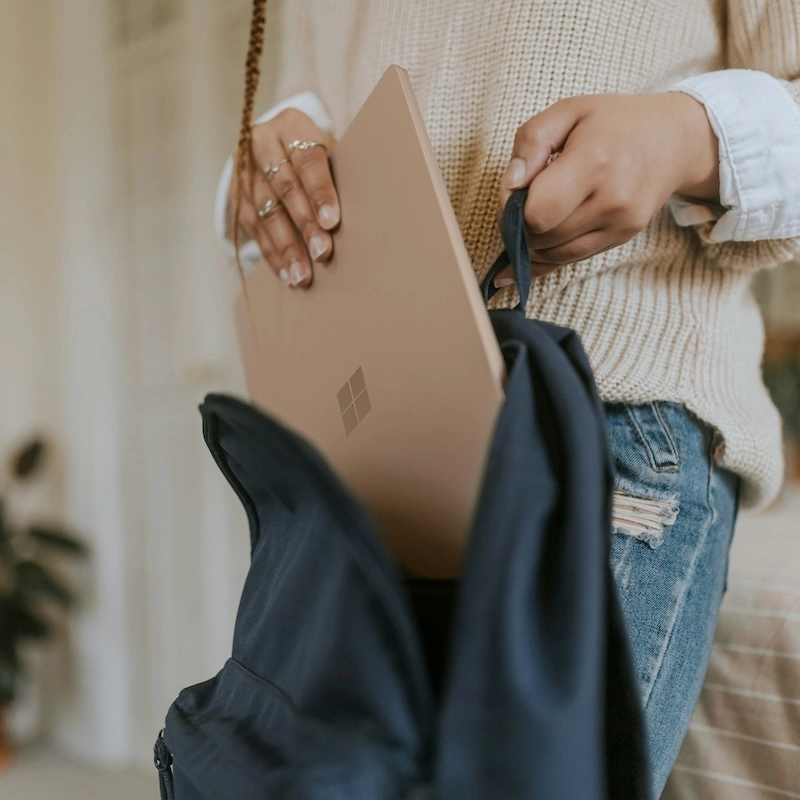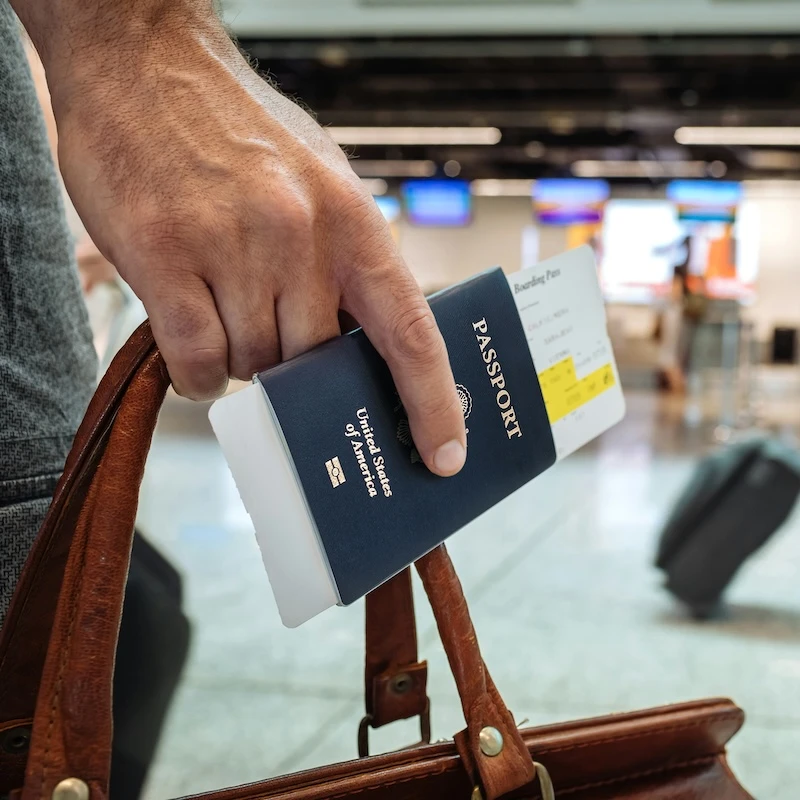TSA Laptop Rules in 2025: Get Ready to Fly
Sarah Pardi - June 5, 2025
Home > Travel Requirements, Policy & Authorization > TSA Laptop Rules in 2025: Get Ready to Fly
Share this post
Getting ready to go through airport security anywhere in the world can feel stressful, especially in places with stricter requirements, like the US.
It can help put you at ease (and make you feel more prepared) when you know exactly what to expect before heading to the airport for your trip.
This is particularly the case if it's your first time flying to/from the States, you haven't flown in a while, or it's your first time flying with a laptop. That said, this guide is for anyone who wants to know the most recent TSA laptop rules and requirements, and it even includes a few tips along the way.
Getting ready to head to the airport can feel intimidating, but with the right information in your back pocket, you will be ready to navigate the process confidently.
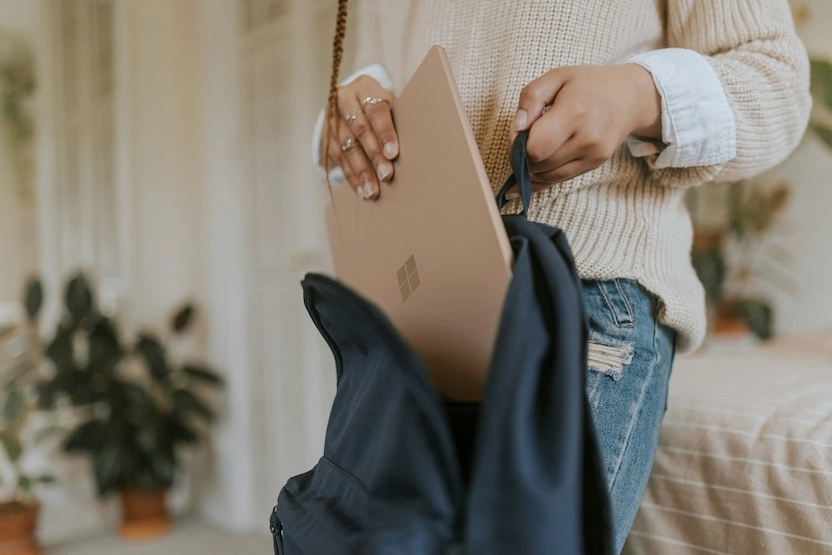
Preparing your laptop for your trip
TSA (short for the Transportation Security Administration) is an official agency of the US government. Created as a direct response to the devastating terrorist attacks on September 11th, 2001, they're responsible for ensuring the safety of millions of air travelers each and every year.
You will come into contact with official TSA agents when passing through airport security in the United States, but don't feel intimidated. They are there to help make sure everyone moves to and fro: Safely and securely.
When traveling with your laptop, you have a couple of options.
1, you can place your laptop in your checked bag. Or, you can bring your laptop in your carry-on. Both are allowed, and what you want to do depends entirely on your preference. There is one exception, however. If your laptop contains a lithium battery, it's mandatory to carry it on. You cannot put electronic devices (including laptops) into your checked bag if they have a lithium battery, as they are a fire risk.
If you are bringing your laptop in your carry-on, you will need to make sure that you comply with TSA rules and regulations and follow their instructions when passing through airport security.
To prepare for TSA, there are a couple of things you should do to help make the process easier and more efficient, for both yourself and others.
- Make sure your laptop is charged before heading to the airport. The TSA does not give official advice on whether your laptop needs to be turned on or off during security screening, but some airlines warn that TSA can ask you to turn on your laptop for them. If the battery is dead, your laptop likely won't turn on, which means it could require more screening, further delaying your arrival to the gate.
- When packing, put your laptop in a place that is easy to access, such as a suitcase front pocket or a backpack.
- If your laptop has a lithium battery, it's mandatory to carry it on.
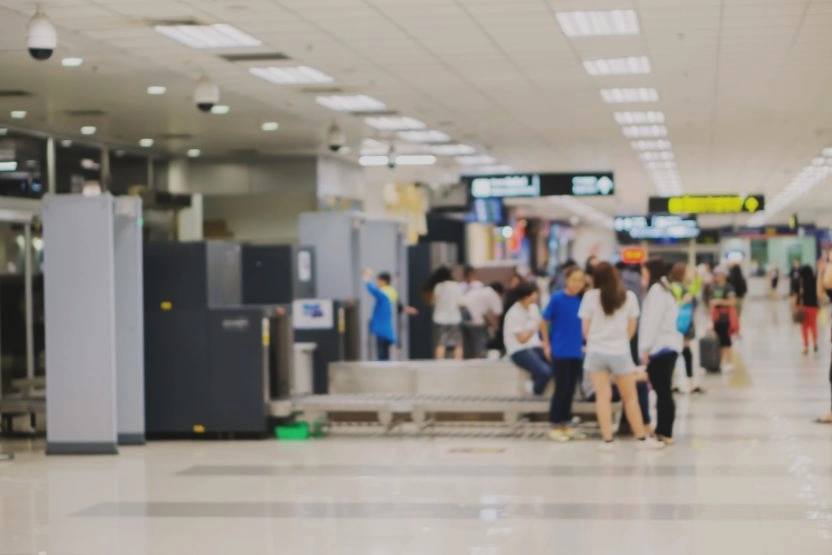
How to go through TSA with a laptop
First and foremost, the TSA's official website states:
"Please remove the laptops from your bag and place it in a separate bin for X-ray screening." - Official TSA Website
That said, it isn't always mandatory.
Whether or not you need to take your laptop out of your bag will depend on local TSA instructions and the type of x-ray machines being operated.
Note: If you have TSA PreCheck, you do not need to remove your laptop from your bag unless otherwise instructed by local agents.
It's best to assume that you will need to remove your laptop from your bag when going through airport security.
Typically speaking, once it is your turn to pass through security, you will need to approach the conveyor belt with the belongings you're carrying onto the plane.
Once there, TSA agents will be present, giving instructions as you move through the line. There may also be signs with instructions both at security and/or leading up to it. Make sure that you always follow the local instructions.
In most cases, you will need to remove your laptop from your backpack/carry-on suitcase and place it in a separate bin on the conveyor belt.
According to many media sources (like CNN and Huffpost), laptops must be taken out of your bag because they hamper visibility during the X-ray screening process. This makes it difficult (or even impossible) for TSA agents to see the contents of your bags. In order to make sure all travelers are thoroughly screened, for the safety of everybody, laptops generally need to be set aside in their own bins.
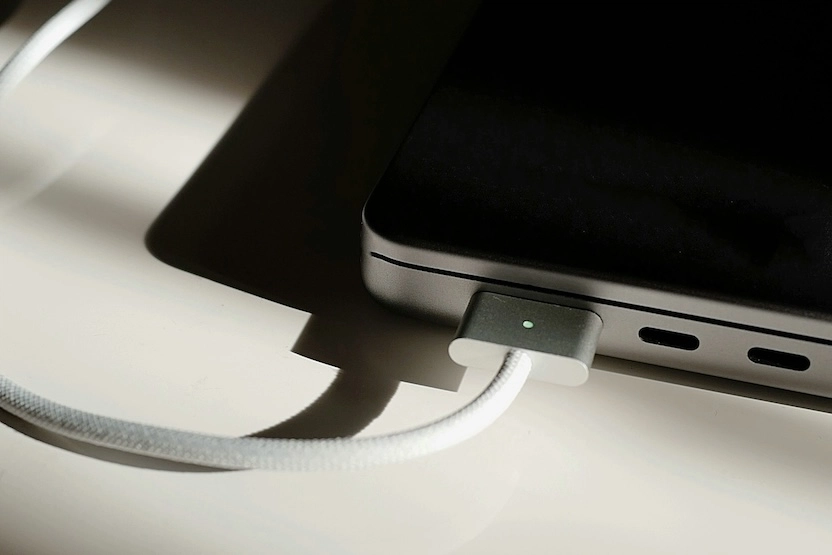
In a nutshell:
- Charge your laptop and put it somewhere secure, but easy to access, before heading to the airport.
- Always follow the instructions of local TSA agents.
- When it's your turn to pass through security, take your laptop out of your carry-on and place it in a separate bin to pass through the X-ray (unless otherwise instructed).
- Follow the rest of the security steps, such as removing your shoes, liquids, etc. (again, follow the lead of your on-the-ground TSA staff).
- After passing through security, make sure to collect your laptop. It will still be in a separate bin.
While uncommon, in some cases, TSA may need to do additional testing on your laptop. This could include swabbing it to test for explosive residue, asking you to turn on your laptop and prove its functionality, or something else.
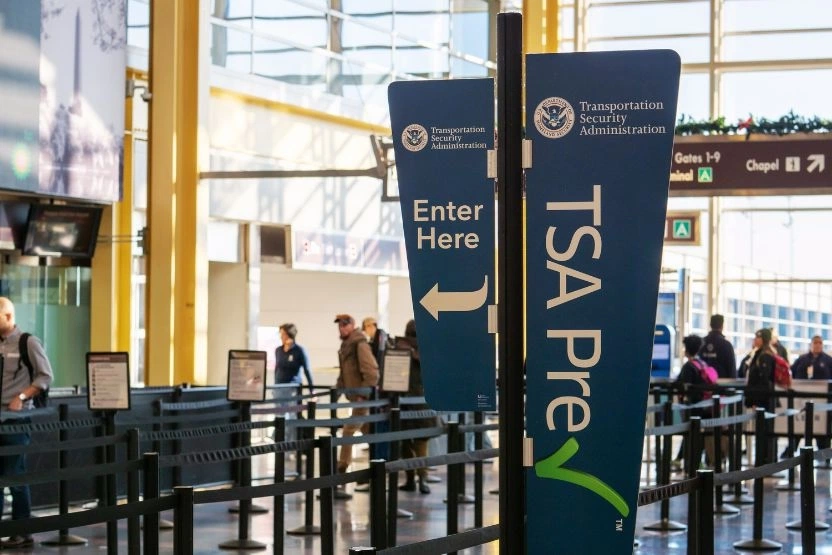
Check which type of battery your laptop has
Some laptops may have lithium batteries. If this is the case, you will need to follow specific guidelines when flying with your laptop.
Believe it or not, it isn't TSA that decides whether or not you can fly with laptops with lithium batteries; it's the FAA (Federal Aviation Administration).
If your laptop has a lithium battery, you need to carry it with you in your carry-on. Devices with lithium batteries cannot be placed in checked luggage.
Lithium batteries pose a fire risk. If a fire breaks out in the hold/undercarriage, the safety of everyone on the flight is jeopardized. If a spontaneous fire happens in-cabin, while it isn't ideal, flight attendants and staff are trained to respond to it quickly and effectively.
Before traveling, check whether or not your laptop has a lithium battery.
FAQs: Laptops and TSA
Related posts
Upcoming travels ? Get Insured !
Find the right insurance for your trip by using our powerful comparison tool!
Sarah Pardi - June 5, 2025
Sarah Pardi - May 31, 2025
Sarah Pardi - May 30, 2025
Sarah Pardi - May 29, 2025
Travel guide
by


Insurte – Insurance Broker – 5 Ter Rue du Magasin à Poudre 14000 Caen (France)
Registered with the Caen (France) Register of Business and Companies under number 523 065 860 and with ORIAS under number 10 056 187. Insurte is subject to the control of the French Prudential and Resolution Supervisory Authority (ACPR), located at 4 Place de Budapest, CS 92459, 75436 Paris Cedex 09 (France).
Disclaimer: Insurte's platform provides in addition of insurance, general information related especially to travel (travel authorization like visas, etc.) through guides, articles, blog posts, and videos. While we strive to ensure accuracy and provide up-to-date information, we cannot guarantee it is entirely comprehensive or without error. Insurte is an independent resource, is not associated with any government, union of governments or government agency and does not accept any liability arising from any inaccuracies or missing details. Our travel content does not constitute legal advice and we encourage you to verify the information yourself and through different sources. If you believe that certain information is not accurate, please let us know.
Insurte © 2025
